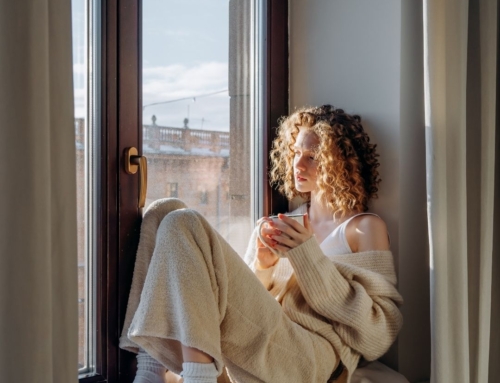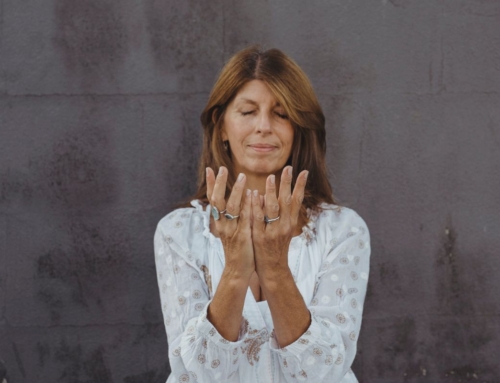Active Relaxation: What Is It And Can It Help You Find Balance In Midlife?
Relaxation can seem more of a luxury that a necessity, our daily lives are so busy, we barely have time to unwind and rejuvenate. In a world that values being super busy we can feel guilty to take time out to give ourselves permission to relax. At any stage of life, time to relax and de-stress is vital for good health and vitality and this is especially true in midlife.
Midlife is a time of change that can leave us feeling physically, mentally and emotionally tired for a whole host of reasons. Physiological changes are happening and hormones are unbalanced leading to many changes in how we feel throughout the day and night (disturbed sleep adding to a lack of energy. Collapsing on the sofa infront of Netflix may be your go to for relaxation and all you feel like doing, I get it!
But this is not the kind of relaxation I’m talking about. This may feel like a good option at the time, but it’s not an effective way to recharge your batteries.
Enter active relaxation
This is a practice that combines movement and relaxation to help us feel more grounded and rejuvenated. Active relaxation techniques can include yoga, qigong, walking, dancing, or any other form of gentle movement that helps us connect with our bodies and breath.
Active relaxation helps your body to get into a parasympathetic state. It involves engaging in activities that help you unwind and de-stress, helping support your body to move from an overactive, stressed sympathetic state to the relaxation response.
The ability for our bodies to relax and de-stress are especially important during midlife when stress levels can be elevated due to a range of factors.
Active relaxation can help us gain more vitality in midlife.
If you are in Midlife, you will know only too well, it is a time of change. Our bodies and minds often start to find it harder to cope with stress and maintain balance. Physically, our bodies start to slow down, and we may experience aches, pains, and health issues. Mentally, we may feel more pressure to achieve career goals or find meaning in our lives. Additionally, we may have family and caregiving responsibilities that add to our stress levels. Its a stage of life where we start to experience a lot of change. All of these factors can make it harder to relax and recharge, which is why active relaxation becomes even more important in midlife.
We can take steps to help our body and mind feel strong and energised. By engaging in activities that help us reduce feelings of stress and keep us active, we can maintain our physical and mental health, improve our quality of life, and thrive during this period of change.
Here are 6 ways active relaxation can lower our stress levels
1 Reduces stress and anxiety. Active relaxation techniques like yoga, qigong, and meditation have been shown to reduce stress and anxiety levels. Studies have found that these techniques activate the parasympathetic nervous system, which is responsible for calming the body’s stress response. Active relaxation techniques are known to reduce cortisol levels in the body, the hormone responsible for the “fight or flight” response. By reducing cortisol levels, we can decrease feelings of stress and anxiety.
2 Boosts immune function. Chronic stress can weaken the immune system, making us more susceptible to illnesses. Active relaxation techniques like meditation and deep breathing have been shown to boost immune function by reducing stress hormones like cortisol.
3 Improves sleep quality. By incorporating active relaxation techniques into your daily routine, you may find that you fall asleep more easily and sleep more deeply. This can be especially helpful for midlife women who may experience disrupted sleep due to hormonal changes.
4 Increases focus and productivity. Studies have found that mindfulness practices like meditation can improve cognitive function and attention span.
5 Enhances overall well-being. Active relaxation has been linked to improved overall well-being.
6 Increased flexibility and mobility As we age, our bodies become less flexible and mobile. Active relaxation techniques like yoga can help us maintain or even improve our flexibility and mobility.
By reducing stress and anxiety, improving sleep quality, and boosting immune function, active relaxation can help you feel happier, think more clearly and feel more energetic and more resilient
Try these ways of incorporating active relaxation into your day.
Starting with my favourite of course, yoga!
Practice Yoga Movement with breath brings ourselves to the present moment Yoga combines stretching, breathing, and relaxation techniques and is an excellent way to reduce stress and anxiety while improving your strength, flexibility and balance
Meditate Meditation is a Powerful tool, and its easy to start with a meditation app such as Calm, Headspace and Insight Timer if you’re are a beginner. I’m a huge fan of Insight Timer, There are thousands of meditations to suit your needs, from as short as a few minutes to longer meditations to deepen your practice. You can check it out here https://insighttimer.com
Yoga Nidra Yoga Nidra is a form of meditation with a focus on profound relaxation.It is an intermediate consciousness state between the waking and sleeping phases. A teacher guides you through your practice. During yoga nidra you train your awareness so that although the body is still and relaxed, the mind is awake and alert. And then that awareness is used to consciously relax the whole body, bit by bit. Try my grounding yoga nidra to calm and relax deeply by following the link
https://www.youtube.com/watch?v=gjwclEDWPck&t=71s

Exercise Maybe you think exercise will be too exhausting but you don’t have do make it a heavy workout. Steady and gentle exercise also helps our body discharge accumulated stress from the day, helping relieve stress and anxiety. This could be walking, dancing, yoga, swimming or any other movement
Cold plunge Helps stress the body so that it more easily copes with stress and learns to release stress.
Breathwork This help us reset the nervous system
Hot bath Can be helpful to relax tired muscles and calm our mind
Massage Helping tense muscles relax and let go of built up tension.
Taking a walk in nature Will boost mood and energy levels
Mindful activities Such as playing an instrument, painting and other relaxing creative activities also bring us into the present moment and stop our minds dwelling on things.
Remember to schedule time for relaxation. It can be as simple as taking a 10 minute walk outdoors or doing some gentle yoga before bed.
I’ve put together a FREE resource to help you. It’s always easier to start new habits with a little support, when you sign up for the guide you’ll get something for your body, your mind and your emotions, helping you to find some relaxation throughout the day. Access the guide herehttps://louiseantippasyoga.ck.page/35e9fb9a62
Joining a yoga or qigong class can be a great way to learn new techniques and connect with others. If you live in the Oslo/Bærum area of Norway check out my in person classes https://louiseantippas.com/in-person-classes/
By engaging in active relaxation, you’ll not only feel more relaxed and energized, but you’ll also be doing something beneficial for your mind and body. So, next time you’re feeling overwhelmed and stressed out, try incorporating some active relaxation techniques into your routine instead of collapsing in front of the TV. Your mind and body will thank you for it!




